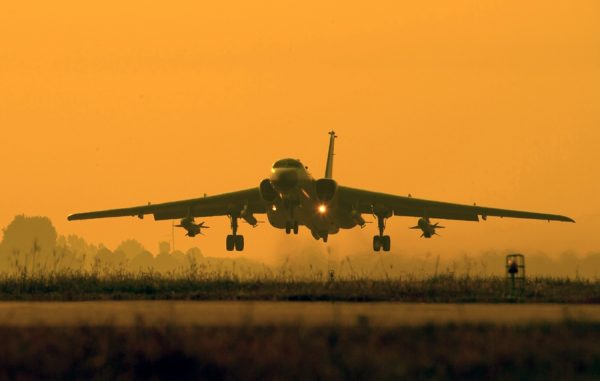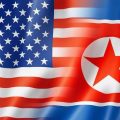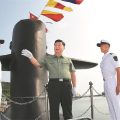The recent landing of bomber aircraft on a South China Sea island by the People’s Liberation Army Air Force is part of normal training that should not be over-interpreted, Foreign Ministry spokesman Lu Kang said on Monday.
Lu made the remark when he was requested to comment on the reaction of the United States and the Philippines to the exercises.
Pentagon spokesman US Marine Lieutenant Colonel Christopher Logan said China’s “continued militarization of disputed features in the South China Sea only serves to raise tensions and destabilize the region”, The Associated Press reported.
Lu rebuked the Pentagon’s comments, saying the training exercise is not what the US has called “militarization”.
“The South China Sea islands are China’s territory. The training is a normal exercise conducted by the Chinese military. It’s not necessary for other parties to make an over-interpretation,” Lu said.
“They are totally different in nature than the behavior of driving one country’s own military vessels and aircraft across a long, long distance to the South China Sea and posing a threat to regional countries,” Lu added.
Bombers of different types, including an unspecified number of H-6Ks from a division of the PLA Air Force, took off from an airport in southern China and made a simulated strike before landing on an island in the South China Sea, according to an Air Force statement on Friday.
The Philippine Department of Foreign Affairs said in a statement on Monday it is “closely monitoring developments” in the South China Sea and “taking the appropriate diplomatic action necessary”, but did not name China.
The US has dispatched its military vessels and aircraft to the South China Sea for years.
Its B-52 bombers carried out training exercises in the vicinity of the South China Sea in late April, Reuters quoted the US Air Force as saying. The news came less than a month after the US sent the aircraft carrier USS Theodore Roosevelt to the South China Sea.
Countries need to get used to China’s training in its own territory, said Teng Jianqun, a researcher at the China Institute of International Studies. Such training, in line with international law and not threatening the security of other countries, is not “militarization”, he said.
The US should stop “pointing its fingers” at such training, which will not alter China’s determination to safeguard its territory, he said.


